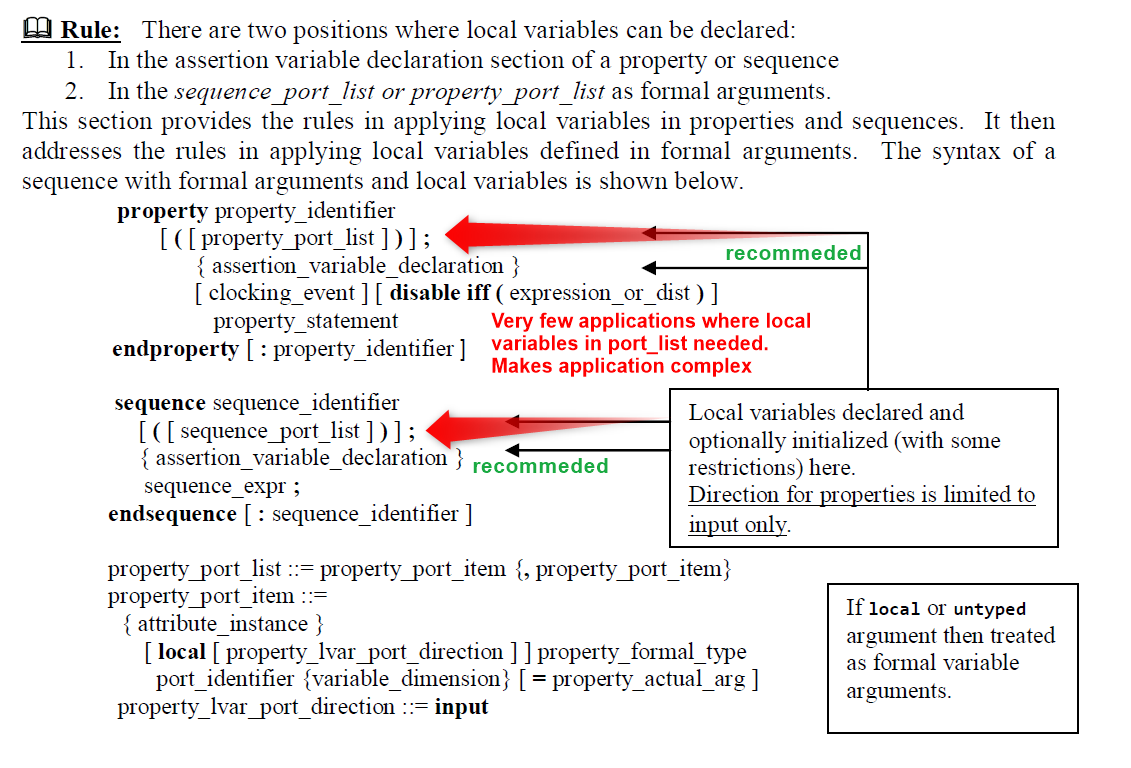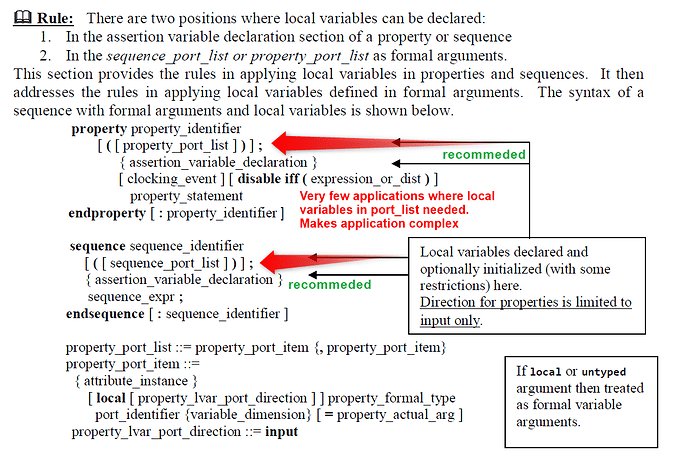In reply to No:
There are sayings that are good advice, particularly in software:
- KISS
- Why make it complicated when you can make it simple?
- Why make it simple when you can make it complicated?
SVA is rich, maybe too rich, in features and possibilities.

Declaring local variables in sequence_port_list is confusing. I wrote several books,
lots of SVA code, analyzed several users’s requirements and have never found the need to do that. Declare the local variables in the assertion_variable_declaration; it make it so much easier.
Here is an awful example that demonstrates why one may want to declare local variables in the port list. I say awful because it creates code that is hard to read an understand, and then you have to worry that you don’t violate the many rules of doing this local variable declaration in the port list. My advice, KISS!
bit clk, a, b, c;
default clocking cb_clk @ (posedge clk); endclocking
sequence q_local_formal_arguments2( local input int i=0, untyped j, k,
local output bit t);
(i>10, j=i) ##1 (1, j=data, t=1'b1) ##1 k;
endsequence
property p_test_untype;
int x, z; // local variable
bit r; // local variable
(a, x=10) ##1
q_local_formal_arguments2( .i(x), .j(z), .k(a), .t(r)) ##1 x==z ##0 r;
endproperty : p_test_untype
ap_test_untype: assert property(p_test_untype);
Ben Cohen
http://www.systemverilog.us/ ben@systemverilog.us
** SVA Handbook 4th Edition, 2016 ISBN 978-1518681448
…
- SVA Package: Dynamic and range delays and repeats SVA: Package for dynamic and range delays and repeats - SystemVerilog - Verification Academy
- Free books: Component Design by Example https://rb.gy/9tcbhl
Real Chip Design and Verification Using Verilog and VHDL($3) https://rb.gy/cwy7nb - Papers:
- Understanding the SVA Engine,
Verification Horizons - Reflections on Users’ Experiences with SVA
Reflections on Users’ Experiences with SVA - SVA Alternative for Complex Assertions
https://verificationacademy.com/news/verification-horizons-march-2018-issue - SVA in a UVM Class-based Environment
https://verificationacademy.com/verification-horizons/february-2013-volume-9-issue-1/SVA-in-a-UVM-Class-based-Environment
Udemy courses by Srinivasan Venkataramanan (http://cvcblr.com/home.html)
https://www.udemy.com/course/sva-basic/
https://www.udemy.com/course/sv-pre-uvm/
